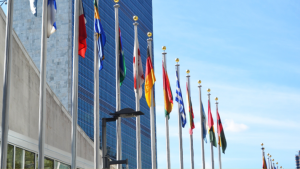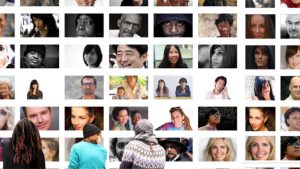Stressed? Anxious? Overwhelmed? Goals are not being met or it’s been hard to make the right decision? The choices feel inadequate, each one requiring that something else be sacrificed?
The Paradox Mindset could be the right answer for you.
Recent news headlines around the globe such as “Climate summit host Egypt cautions nations against zero-sum game” and “South Africa is trapped again: what kind of leaders can set the country free” show how critical it is for everyone to learn a better way to look at problems.
Many of our systems are made with the premise that the sum of all gains and losses equals zero; that there is just one pie; that for one person to win, another must lose. Even though recent crises may seem to confirm that resources are finite and limited, this thinking is faulty. If we look at humanity’s history throughout the last couple of centuries, the world population has increased many folds and with a longer life expectancy. If zero-sum were to be true, then we would all be living in extreme poverty. Instead, we see more people with access to wealth in an increasingly prosperous world.
So, how do we change a win-lose situation to win-win? By switching from thinking either/or to both/and. By developing a paradox mindset.
But what is a paradox mindset? It is a set of beliefs and attitudes that allows a person to be able to question their own paradigms, contemplate an issue from different angles, understand contexts, and find sense of contradictions.
Sometimes contradictions are uncomfortable to reconcile until we appreciate the good of the other side. In the paradox of light and darkness, for example, we realize that at some point we inherited the concept that light is good and darkness is evil. Because of that we fear darkness. Truth is, one cannot exist without the other. There is no light without darkness. Day follows night follows day. And on it goes. Without this cycle, there would be no life on earth. We human beings need the night. We rest and recharge in darkness.
Some paradoxes I personally find comforting are:
- The only constant is change. Being able to let go of the need for absolute control is liberating. The present is the only reality I have to work with.
- The only certainty is that nothing is certain. I am reminded to keep a window for new information to come to me, and it’s okay to change my mind.
- Less is more. Simplicity is ease, and more profitable. Especially in business. Say, if I were to run a restaurant, I’d rather design a 20 item menu over an 80 item one.
- The more you fail, the more likely you will succeed. There is no shame in failing. If I want to succeed, I have to keep trying and hope to fail fast each time until I reach my goal.
Cultivating a paradox mindset is not merely beneficial, it is essential if we want to thrive. The benefits of a more holistic approach – by seeing the bigger picture – include, but not limited to:
- Adaptability
- Creativity
- Innovation
- Ability to bridge divides
- Tolerance of ambiguity
- Wider perspective on issues
- Integration of multiple viewpoints
- Better decision-making
- Improved emotional responses
- More effective leadership
- Superior performance
To master paradoxical thinking takes practice, but it’s not necessarily difficult. Only prerequisites are to become aware when stuck in a zero-sum position and be open to explore new ideas. If you find yourself stuck in a dilemma:
- Don’t fret, just yet.
- Take a step back.
- Come back with fresh eyes.
- Question your assumptions.
- Reframe what constitutes a win.
- Welcome contradictions.
Doing these things will shift the entire dynamic within yourself (and those around you) from rigidity to flexibility, fuel creativity, and allow for experimentation.
Embracing paradoxes is accepting that contradictions can be true at the same time. It’s not either or, it’s the whole thing, all of it. This reflective exercise helps you grasp the nuances of an issue, see more options, break barriers, and find compromise. It also eases the stress stemming from demands and problems.
By loosening constraints, you open up the space for new opportunities. More can be achieved, less need to be sacrificed. You get the “impossible” done.





